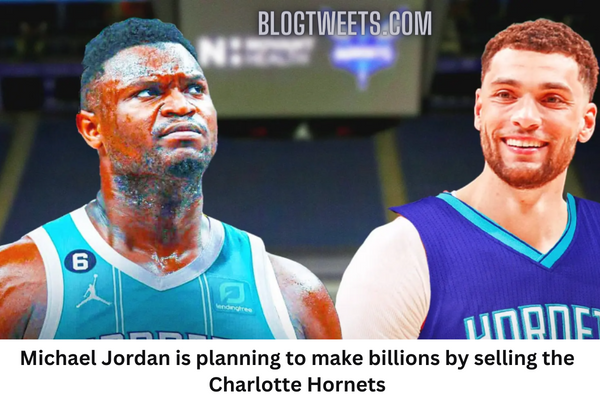More than 4,000 drug adverts in the style of the Olympics have been spotted on Facebook and Instagram

Some customers are dissatisfied with the constant presence of advertisements for weight-loss injections everywhere they turn, including on television, on street signs near public transportation, on airport walls and pretty much every other surface used for marketing.
Thousands of weight-loss advertisements for the drugs Ozempic and Wegovy, or for their active ingredient, are being run by online pharmacies, medical spas, and diet clinics on social media in an effort to capitalise on the rise in interest in these medications. However, this is upsetting some consumers who claim they are being deluged with advertisements that suggest they could benefit from the drug.
Multiple searches over several days on the ad library of the parent business of the apps, Meta, revealed that there were more than 4,000 active ad campaigns on Facebook and Instagram alone that included semaglutide, the main ingredient of the medications, in the U.S.
By that standard, semaglutide is promoted on social media more frequently than even the erectile dysfunction medication Viagra, which was the focus of 800 active Instagram and 930 Facebook ad campaigns as of Monday and is well-known for being a favourite of online marketers. The cost of these advertising efforts is not disclosed by Meta.
Moreover, it goes beyond social media. Some customers are dissatisfied with the constant presence of advertisements for weight-loss injections everywhere they turn, including on television, on street signs near public transportation, on airport walls and pretty much every other surface used for marketing.
Following months of publicity surrounding Ozempic, a medication used to treat adult diabetics, the deluge of advertisements reveals a rush by businesses to snag new weight-loss clients. Versions of the medication have seen a huge increase in demand this year as a short-term treatment for obesity, thanks to celebrities and billionaires.
After NBC News contacted Meta with inquiries regarding the amount of commercials, the number of ad campaigns on its platforms significantly decreased to roughly 560 on Wednesday, a loss of 88% from Tuesday. The company’s enforcement initiatives, according to a Meta representative, are what caused the decline. The business has a policy stating that only online pharmacies, telehealth providers, and pharmaceutical companies are permitted to market prescription drugs without first obtaining written consent and supplying proof of an applicable licence.
The parent corporation of Facebook has a long history of ignoring advertising that violate its policies, such as those selling guns and narcotics, and then removing them after being alerted to them by journalists, watchdogs, or regular users.
The corporation claims that software has largely automated the evaluation process.
Adults with diabetes can use ozempic injections as a prescription medication to lower their blood sugar. Additionally, a tablet version is offered under the Rybelsus brand. The Food and Drug Administration approved Wegovy, a stronger form of Ozempic, as a treatment for obesity in adults who are overweight and over the age of 12 and for adults with a weight-related health condition in 2021.
The three brand-name medications are all produced by the Danish pharmaceutical company Novo Nordisk. The FDA states that there are no semaglutide generics that have been approved.
Semaglutide was in short supply, and Novo Nordisk didn’t want to increase demand, so it announced in May that it was halting its advertising. As of Tuesday, Novo Nordisk had 49 active ad campaigns for Wegovy listed in the advertisement collection at Meta. Novo Nordisk stated in a statement on Wednesday that it has continued to pause all local television advertisements for Wegovy and has postponed all national television advertisements that were scheduled.
The majority of the advertisements on social media are not from the drugmaker. Instead, internet pharmacies and less well-known marketers have been in charge of the advertising campaigns.
The spike in advertisements comes approximately two years after Instagram came under more attention regarding whether the platform has contributed to eating disorders and body image problems in young women. The Wall Street Journal reported in 2021 that Instagram’s internal researchers had known for years that the programme was bad for young users, especially teen girls. Since then, advertising may no longer specifically target teens, thanks to Meta.
Jake Pikula, 28, claimed that he first noticed Ozempic advertisements on Instagram in late May and has seen them frequently ever since.
He said, “I’ve never noticed a topic so much,” and expressed amusement that the intricate marketing system on Instagram had selected him as a target. Since I’ve always been a little bigger, I laughed and remarked, “Oh, maybe I need it!”
Pikula claimed he had no idea why Instagram’s ad network had chosen to target him. There could be a variety of factors at play, such as the fact that Meta lets marketers target users who are interested in specific diets or forms of exercise, yet users cannot view the targeting methods used by advertisers thanks to the ad library.
The commercials have bothered some people more than others.
She questioned, “Why would I be the target audience?” “as the message appeared, I genuinely believed it to be a joke or a farce, but as I looked closer, I saw that it was sponsored. It stated that an online prescription was possible and would be quite simple.
Hadrian Flyte, a 34-year-old from northwest Arkansas, complained that Ozempic advertisements clog up his Facebook stream, especially after he works out or posts on the social media site.
It made him angry because he didn’t need the item or want the advertisements, he added. It appeared to be attempting to sell me a miraculous medication.
He claimed that before seeing the advertisements, he had discussed taking the medication with his doctor out of fear that he would develop pre-diabetes in the future, but had chosen to concentrate on making changes to his diet and exercise regimen instead. He claimed that he disapproves of the Ozempic craze.
I don’t think trying to market something new should be tied to health care, he remarked.
There are drawbacks to the treatment. Some people have mentioned adverse effects like exhaustion and vomiting, while others claim their weight returned when they stopped taking the weekly doses. Wegovy’s negative effects, which include nausea and exhaustion in addition to more severe ones like pancreatitis, are all listed by Novo Nordisk.
Nevertheless, the demand for semaglutide medications increased so significantly in the previous year that there weren’t enough to satisfy it for the drug’s additional use in helping diabetics control their blood sugar levels.
According to NBC News last month, the sudden increase in demand has also given pharmacists an incentive to produce or distribute illegal copycat copies of the medications. As a result, some states have threatened legal action against the pharmacies.
A representative for Novo Nordisk named Allison Schneider restated the firm’s stance that it is initiating legal action against these pharmacies, often known as compounding pharmacies. It’s unclear how many of them worked as Meta marketers.
Ro, a health app and online pharmacy, announced this week that it will reduce its promotion, including halting all TV commercials. CEO Zachariah Reitano stated in a statement posted on Ro’s website on Monday that he did not want to run advertisements for the drug because there was already insufficient supply to satisfy demand.
The Wall Street Journal reports that a second advertiser, NextMed, removed its advertising from Instagram and other platforms in March after the publication questioned the business about its use of before-and-after photographs demonstrating significant weight loss in ads for non-clients. An inquiry for comment from NBC News this week did not receive a prompt response from NextMed.
However, Ozempic advertisements have continued to arrive in waves even after those exits. According to the ad library, as of Tuesday, 4,500 advertisements on Facebook, Instagram, and other platforms run by Meta included semaglutide, the active element in Ozempic.
Regarding its policy and enforcement, Meta declined to make any of its employees accessible for an interview. A firm representative claimed in an email that it works fast to delete ads that are found to be in violation of its regulations.
There don’t seem to be as many commercials on TikTok. The ad explorer feature on TikTok revealed 394 adverts for semaglutide during the previous 30 days after a search. However, TikTok states on its website that the technology requires advertisers to opt in before being presented.
There don’t seem to be as many commercials on TikTok. The ad explorer feature on TikTok revealed 394 adverts for semaglutide during the previous 30 days after a search. However, TikTok notes on its website that not all adverts may be reflected by the technology and that advertisers must choose to be displayed.
Despite having its own ad search tool, Google, the largest online advertising company by revenue, only lets users search by advertiser name or website, not by product or keyword. In 2021, Twitter closed its Ad Transparency Centre.
Customers claimed to have frequently seen Ro’s advertisements on social media to NBC News. According to Meta’s ad library, as of last week, Ro was running 66 separate Instagram and Facebook advertisements, 32 of which were focused on Ozempic or Wegovy.
The marketing strategy of Ro, which places a strong focus on weight loss, sexual health, skin care, and hair care, has already come under scrutiny. The business faced backlash in March after launching a weight loss advertising campaign in the New York City subway system.
The business released a statement in which it stated, “Our new marketing campaign, supported by clinical research and conversations with our patients, aims to start an important, occasionally difficult conversation focused on de-stigmatizing obesity as a condition and highlighting a new, incredibly effective treatment that may, for the first time, be a real solution for millions of people.”
“We recognise that these are difficult conversations to have — and that not everyone will love our marketing,” the statement said.
A representative for Ro claimed on Friday that the same reasoning holds true for current social media advertisements.
The advertisements are currently a hot topic on social media. The star Sophie Turner, who is arguably best known for her work on “Game of Thrones,” expressed her displeasure about the Ro advertisements in the Times Square tube station in an Instagram post in April. The ads have also been criticised by TikTok influencers, who claim they imply that everyone should be 20% smaller.
The comedian Amy Schumer claimed that she felt so bad from using the drug last year that she was unable to play with her son.
However, there is a lot of money at stake because, according to Barclays analysts, the global market for treating obesity is expected to reach $200 billion in the next ten years.
When Ian Kar, a 31-year-old venture capitalist in Los Angeles, began to see Ozempic ads on Instagram, he perceived what he saw as a traditional Silicon Valley tech startup move: leverage social media marketing to promote rapid sales growth at almost any cost.
Given the industry, “a lot of startups are trying to figure out new ways to grow,” Kar added.
In this instance, however, he asserted that he believes internet businesses are going too far, particularly in light of the fact that so many young people on Instagram struggle with eating disorders or body image issues.
The advertisements, in Kar’s opinion, “don’t teach good behaviours.” It propagates the idea that there is a miracle weight-loss drug.
Along with its restriction on who may market prescription pharmaceuticals, Meta also has rules for advertisers, such as a prohibition on health advertisements that suggest “unrealistic or unexpected results.”
On its website, the FDA provides contact information for reporting possibly incorrect or deceptive advertisements. The FDA oversees how prescription pharmaceuticals are promoted, including on social media.
Drug companies and other marketers are increasingly using social media, including paid influencers, to increase sales, according to Erin Willis, an associate professor of advertising, public relations, and media design at the University of Colorado, Boulder. She wrote a report about the influencer alliances and published it in the Journal of Medical Internet Research last year.
Pharmaceutical businesses can use this strategy to cut through the noise and reach consumers directly, according to Willis.
Some patient advocates are alarmed by the amount of advertising because they believe it to be hype and doesn’t provide enough information about the risks of the injections.
According to Sneha Dave, executive director of Generation Patient, a group that advocates for patients in their twenties and thirties, federal laws governing drug advertising haven’t evolved to reflect changes in social media, such the rise of short-form video on platforms like Instagram and TikTok.
She suggested that consumers should be extremely cautious about investigating dangers up until regulators provide more guidelines.
Despite how effectively they appear to function, Dave noted that there are always safety issues to be concerned about because, at the end of the day, these are powerful chemical compounds.








